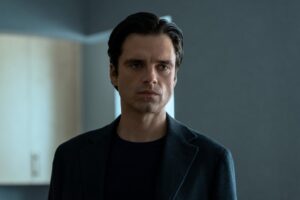In American Fiction, a satirical look at the attraction of American culture with Black trauma, the protagonist, Monk, is portrayed by Cord Jefferson, a novice filmmaker. Jefferson adds, “There’s a lot of me in Monk.”
As a former journalist and television writer who has won an Emmy, Jefferson is most well-known for his work on the television shows Watchmen and The Good Place. But his very personal feature debut, which is adapted from a novel written by Percival Everett in 2001, is an intriguing investigation of perceptions and representation in the world of literature. It modifies stereotypes in a humorous manner while showing uncomfortable facts about bias and appropriation.
To be more specific, it investigates the ways in which appreciation of art is frequently viewed through the prism of guilt and compelled compassion, with the underlying theory that it is not progress when one must pander to placate the public.
A disgruntled Black novelist and college professor named Thelonius “Monk” Ellison, played by Jeffrey Wright, is the protagonist of this drama. He is at a crossroads in both his personal and professional life. Overcoming his reluctance, he moves across the nation in order to spend time with his sister, Tracee Ellis Ross, and his mother, Leslie Uggams, who is becoming older. During the course of his journey, he is compelled to confront sentiments of sadness and solitude, both of which contribute to the abrasive nature of his personality.
After that, he becomes enraged when he hears an author, Issa Rae, read from a work that is filled to the brim with clichés about “the Black experience” and that receives praise only from White readers and critics. Monk reacts by adopting a pen name and identity as a streetwise ex-convict whose book, which is filled with cliches and vulgarities, will become a hit. At that point, he will be able to expose everyone’s hypocrisy. For obvious reasons, the plan fails, and as a result, Monk finds himself in a morally difficult situation.
On January 5th, American Fiction will open in Dallas. With the film having its Texas premiere at the Austin Film Festival not too long ago, Jefferson discussed his opinions on the film’s potential to appeal to a wider audience. The interview has been made shorter and more understandable through editing.
Although Jeffrey Wright is one of those performers that elevates the quality of everything he is in, he is not given many opportunities to play roles of this caliber. Why was he the perfect fit for Monk? My attention has always been drawn to him as a potential partner. When I was younger, I was always shocked that he didn’t have more leading roles in movies or television shows. It was impossible for me to keep my eyes off of him whenever he appeared on the television. In a fundamental sense, everyone was aware of the fact that he was an outstanding actor. I was thrilled to put him in the spotlight since he is deserving of an opportunity like this. The last time he had a job that was this substantial and that he could delve into in this manner was a very long time ago.
Discuss the process of developing Monk’s personality using your own voice. When compared to how he is portrayed in the film, he is a little more belligerent and has some more pointed edges in the novel. At the same time that you are a prickly jerk, it is a little bit more difficult to walk that tightrope on the big screen and get people to root for you. The true magic happened when Jeffrey walked in with his interpretation of him, even though I had written him to be a little bit more emotionally sensitive. I was able to achieve the tone I was striving for with him. When it comes to being a lovable grump, it is a tricky line to walk.
While you were putting your own spin on Monk, did you find yourself finding ideological common ground with him? Where did you find your connection? While I was going through a period of significant upheaval in my life, I started reading this book. I began in 2010 to make a concerted effort to improve myself and to address a significant number of the emotional challenges that I was facing at the time. I had become into this guy who was completely cut off from the rest of the world. I didn’t really let people in emotionally, I wouldn’t let myself be vulnerable, and I was aggressive against those who were close to me. A couple of years ago, Monk served as a representation of myself. As a result of the rage and the misery that he was experiencing, he had become as isolated as possible and had become more distant from everyone. Upon seeing that, I immediately recognized that as being the case. It was a character that I had a profound feeling of familiarity with.
It is a film about the dysfunctional public discourse of today, particularly as it relates to the appreciation and perception of art and literary works, but it also has a connection to you in the year 2010. It is not easy to traverse across that region. It is quite disheartening to see that the problems that it raises are still as pertinent as they were in the years before. I am aware of the ways in which concerns of sexuality, class, and racism interact with one another. Each and every one of these items is a serious matter that can have terrible repercussions. I wanted to break away from that and create something that was extremely friendly to people of all races, ages, colors, and social classes, regardless of what their beliefs were going into the picture. I wanted to build something that was really welcoming to everyone. In the film that I wanted to make, I wanted it to have the feeling that anyone could walk in and find a little part of themselves there, as well as feel some empathy for the character and laugh a little bit. There are a number of things that we struggle with in this day and age, one of which is finding ways to laugh at ourselves, our shortcomings, and the issues that we face in this country. People are so nervous and terrified of being vulnerable and saying the wrong thing that they are afraid of saying. One of my goals was to create something that could provide a respite from pressure. It was important to me that these conversations take place in a manner that was a bit less threatening and a little less acidic. It is not necessary for us to merely speak in our own nooks and crannies, or within our own echo chambers.
For the sake of the satire, everyone is a target. The idea that we are all flawed and responsible for our own actions carries with it a certain level of rapport. How were you able to identify the more profound feeling of the material? I did not intend to humiliate or humiliate anyone by browbeating them. As flawed individuals, we are all prone to making mistakes. We should admit that and then chuckle at the ridiculousness of the situation. In my filmmaking endeavors, I aimed to create a film that was satirical without being hilarious. In spite of the fact that you may not have any sympathy for the challenges he faces in his professional life, it is my goal that you will be able to appreciate the warmth that is present in the story of his family. It is possible to identify the problems that he has with his siblings and his parents. It’s possible that there are folks who are different from you but they are going through the exact same challenges and troubles.





